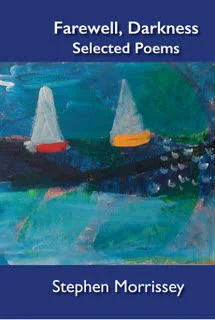 |
| "Sunset Landscape" by Darrell Morrisey, dated May 1917 |
In March of this year I was contacted by Gretchen Shoring of ARTI, a company selling antique paintings located in London, UK, about a painting possibly by Canadian artist Darrell Morrisey. Darrell was a "forgotten" member of Montreal's Beaver Hall group of artists; while some members of the group have become famous, Darrell and several others have mostly disappeared from public view.
"Sunset Landscape" is not signed on the front of the painting, but Darrell's signature is on the reverse, written in pencil in cursive; on the previously discovered painting (see below) by Darrell, her name is printed in block letters at the lower left of the painting; in both cases she has written her name, "D. Morrisey". Duggleby Stephenson, the auction house based in Yorkshire, UK, which first acquired this painting, describes it as follows:
Description: Darrell Morrisey (Canadian 1897-1930): Sunset Landscape, oil on board signed with initials, inscribed and dated 1917 verso 13cm x 19cm
Here is a suggestion of what might be the provenance of "Sunset Landscape". The painting might have been a gift by Darrell to someone she knew, I suggest it was given to Charles Darrell (or a member of his family), after whom Darrell was named, as he was both Darrell’s godfather and a close friend of T.L. Morrisey, Darrell's father. In 1913, when Darrell was about fifteen years old, she left Montreal for the UK, accompanied by Charles Darrell to his family home in Chiselhurst, Kent, where she would board at Tudor Hall School. Charles Darrell and his wife, Emily Harries Jones, had four daughters, all older than Darrell, and Darrell could easily have been included in family gatherings. Charles Darrell was born and raised in Yorkshire, where Duggleby Stephenson is located; is it not possible that a descendant of Charles Darrell returned to Yorkshire and, many years later, in 2023 or 2024, decided to sell the painting? Someone identified the artist, Darrell Morrisey, who was a family friend, on a note attached to the reverse of the painting. I think this is a possible scenario. But, obviously, I am just speculating and I could be totally wrong.
Finally, I like this painting very much; it demands our attention. To me, the painting has a charisma (assuming a painting can have charisma; Darrell definitively had charisma). Of course, what we need are more paintings by Darrell, and we may find a few more, but for now we have her life story that is still unfolding, and we have these paintings by her.
Here is a link to my 2012 essay on Darrell Morrisey: Darrell Morrisey, a forgotten Beaver Hall artist.
 |
| "Sunset Landscape", by Darrell Morrisey, 1917 |
 |
| Reverse side of "Sunset Landscape” with Darrell's signature and a sticker identifying Darrell and her brother, Thomas Sydney Morrisey Two paintings by Darrell Morrisey |
 |
| Painting by Darrell Morrisey discovered in 2014 |

.JPG)



